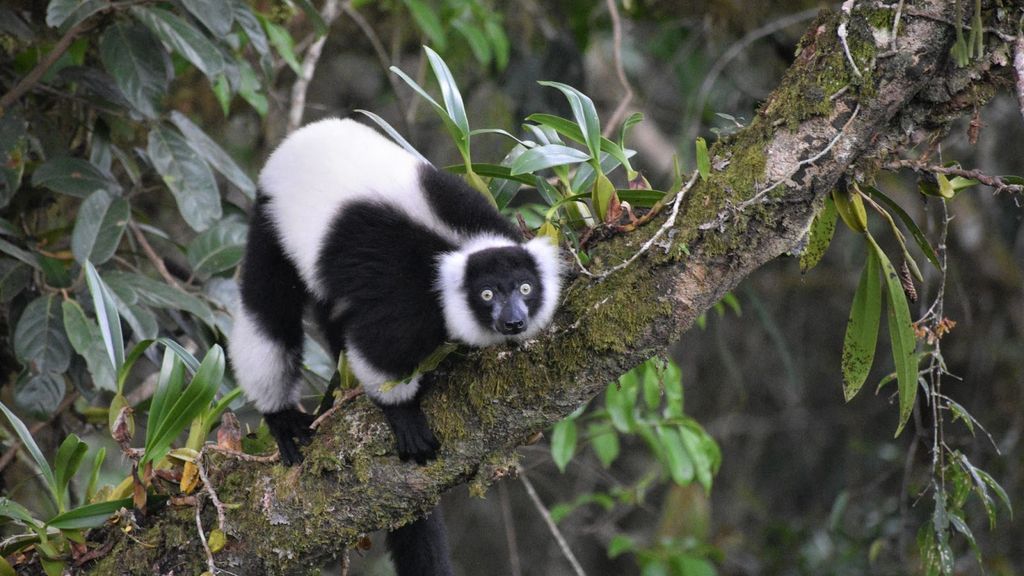The Hunter College professor who has introduced hundreds of students to lemur ecology and conservation in Madagascar has received a new grant for her program.
Associate Professor Andrea Baden, director of Hunter’s Primate Molecular Ecology Lab and The Ranomafana Ruffed Lemur Project, secured $200,000 in conservation funds from the Columbus Zoo and Aquarium in Ohio as part of their long-term joint effort to protect the critically endangered black-and-white ruffed lemur, a small primate living on the island nation of Madagascar.
“Conservation fails when the biology of the species or ecosystem isn’t considered,” Baden said. “Likewise, conservation strategies don’t work unless the local community is given a voice, training, and autonomy to enact them. Our project takes a holistic approach that seeks to understand the species biology, train local stakeholders in the field, and collaboratively craft scientifically driven conservation-management strategies to improve its long-term likelihood of success.”

A Ruffed Lemur in Madagascar.
The collaboration between the college’s Primate Molecular Ecology Lab and the Columbus Zoo aims to save the endangered species from extinction by studying the health, genetic diversity, and reproductive physiology of black-and-white ruffed lemurs, and using scientific results to guide conservation management of the species. The project is situated in Ranomafana National Park, a 161-square-mile tropical rainforest to which Baden has been taking teams of Hunter students every summer since 2014.
The 18-year-old conservation program is thought to be the longest-running ruffed lemur study. It has generated significant data on the behavior, demography, and ecology of the park’s fauna, which has been used to train students from across the globe for the advanced study of primates. At least seven Hunter graduates have chosen to pursue PhDs after participating in the program.
The funding from the Columbus Zoo has helped replace old equipment and add staff to the 14-member field team in Madagascar, including two local master’s students and a Malagasy doctoral student. Future initiatives will also include training and exchange opportunities via an annual veterinary-student exchange program, and summer Study Abroad experiences offered through Hunter College.
Baden’s program to preserve the ruffed lemur has even broader ramifications than saving an endangered species: It also maintains the biodiversity of the island, keeps the ecosystem stable, and creates opportunities for responsible tourism, which supports local economies and raises awareness about the importance of conservation.
“We are excited to share our passion for lemur conservation with Hunter students and encourage them to join us in Madagascar,” Baden said. “The experience in Ranomafana National Park is life-changing — a field program unlike any other.”


